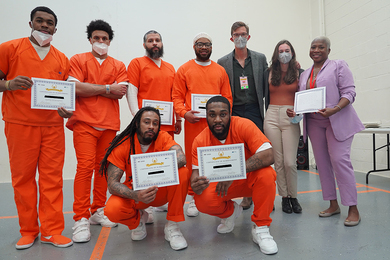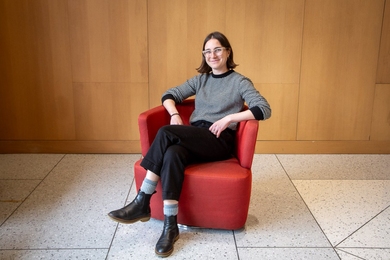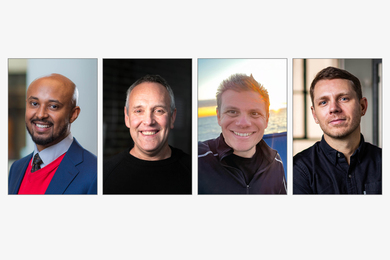The bureaucratic desire of an institution to protect itself inhibits its dedication to the free and open exchange of ideas... a company's attempts to thwart a physician's efforts to alert the public to a health risk endangers lives... and a government official's power play withholds information that could have changed American public policy.
These are some of the examples of the dangers of secrecy presented Monday at an all-day colloquium on secrecy in science in Kresge Auditorium.
Cosponsored by the American Association for the Advancement of Science (AAAS) and MIT, the event brought together individuals with expertise in government, health research, intellectual property and encryption to examine past and present issues in secrecy.
Sen. Daniel Patrick Moynihan (D-NY), who led the bipartisan Commission on Protecting and Reducing Government Secrecy created by Congress in 1994, is the author of Secrecy: The American Experience (1998). He spoke about what he called "the science of secrecy, a little-understood development as an institution in American government."
Sen. Moynihan said an inspection of government classified information in 1997 led to an official count of more than 6.6 million secrets, of which only 1.5 percent are related to atomic energy statutes. The real cost of this massive effort to keep information from the American people, he said, is "clogging up" open debates and exchanges of information that are essential for democracy to work as it is meant to work.
Besides, he said, such secrecy is futile. There is no law preventing the release of all those millions of secrets, and in any case, "nothing should be secret more than five years. In that time, someone always finds it or steals it," he said.
Sen. Moynihan relayed how in the 1950s, after the CIA managed to uncover the identities of virtually all the individuals tied to the KGB's spy apparatus within the United States, the American people were never told. In addition, White House Chief of Staff Omar Bradley never informed President Truman.
"This information was army property and he wasn't about to give it up unless he received something of value in return. Presumably, nothing of value ever materialized," he said.
The politics of the next generation was shaped by that deception, said Sen. Moynihan, who characterized secrecy as a "hidden, humon-gous, metastasized mass within government itself."
Institute Professor and former CIA director John M. Deutch said that despite higher education's apparent dedication to open inquiry and free exchange of ideas, secrecy has been "known to find its way on campus. Universities are not always enormously willing to share information about themselves." For example, he said, statistics on drug use or sexual harassment on campuses are not always collected or shared.
Professor Deutch said he believes that with the exception of certain information such as health records and academic records, secrecy has no place on a university campus. The perceived threat to national security of foreign nationals having access to American-developed technology and information does not worry him.
"If foreign students return to their homes and use their training in programs that are economically competitive to the United States, I say, 'good for them.' It is always inappropriate to constrain students from having free access to research."
In addition, he said, "we are not always as open with our own research as the public expects."
A few years ago, Brown University occupational physician David Kern investigated a mysterious lung disease affecting workers in a Rhode Island textile company. When he decided to present his findings at a 1997 scientific meeting, he was told by the textile company and Brown-affiliated Memorial Hospital that he could not discuss his research because of a confidentiality agreement he had signed when he was first called into the factory to look at one case of the illness, a year before he began his studies.
One week after he returned from the meeting at which he insisted on presenting his results, he was told that his "tenure-equivalent" position had been terminated. But, he said, contrary to information printed in MIT Tech Talk and sent out as a news release before the conference, he is not suing Brown University for breach of contract and "never threatened to sue."
Dr. Kern, associate professor of medicine at Brown, said he had signed a confidentiality agreement that is typically signed by vendors, sales people and consultants to protect the company's trade secrets. He maintains that his discovery of a potentially fatal lung disease at the plant had nothing to do with trade secrets and the agreement did not prevent him from disseminating his research results to the public.
Dr. Kern said his findings are important to public health. Last August, he published his results in a peer-reviewed medical journal. His termination as director of the occupational health center and termination of the state's only occupation health program has affected his patients, he said. "These administrators fail to realize that people's lives hang in the balance."
Following the morning speakers, panels were held on industry and university relations.
Founded in 1848, AAAS represents the world's largest federation of scientists from a variety of disciplines and has more than 143,000 individual members.
A version of this article appeared in the March 31, 1999 issue of MIT Tech Talk (Volume 43, Number 24).





